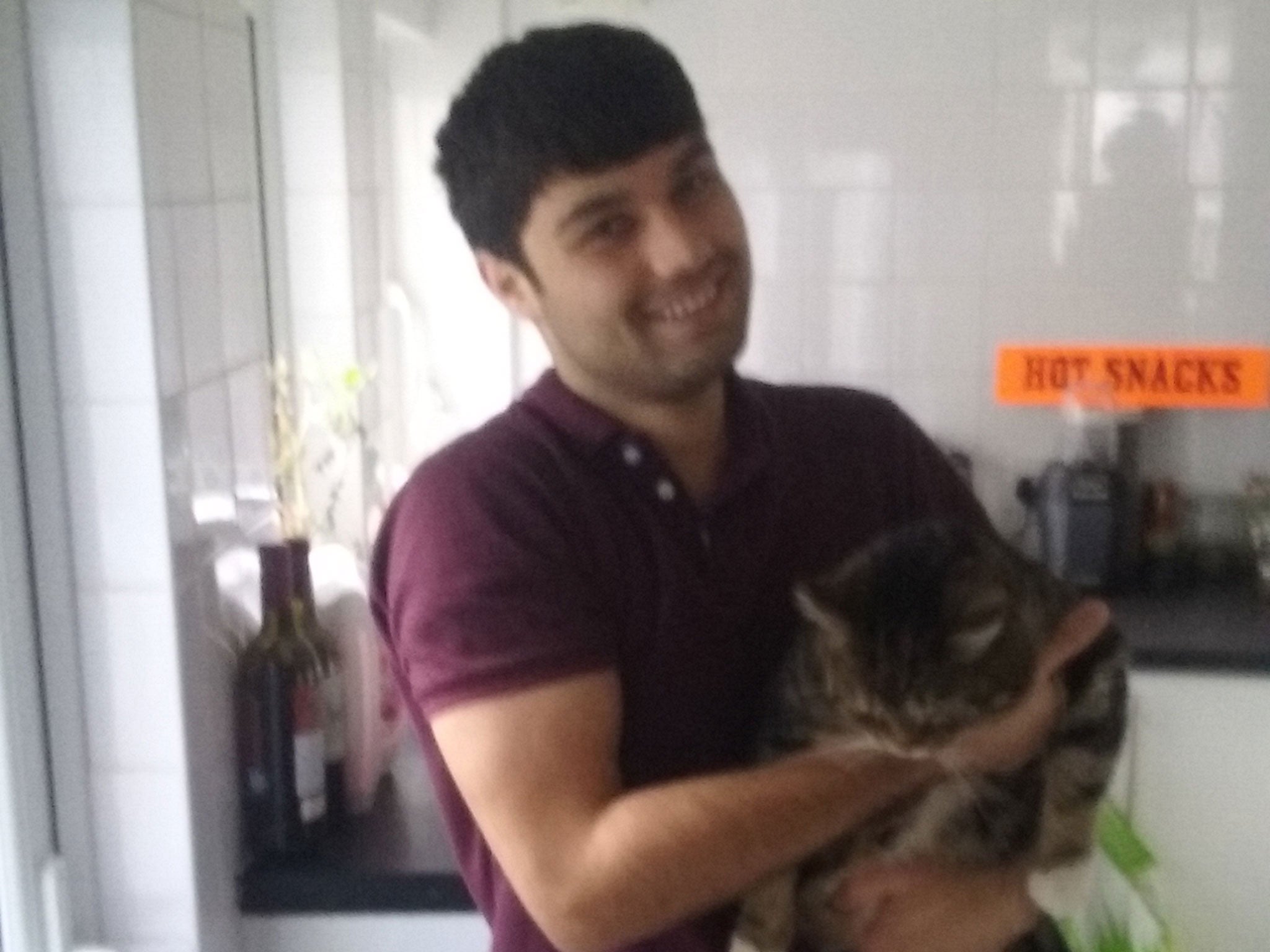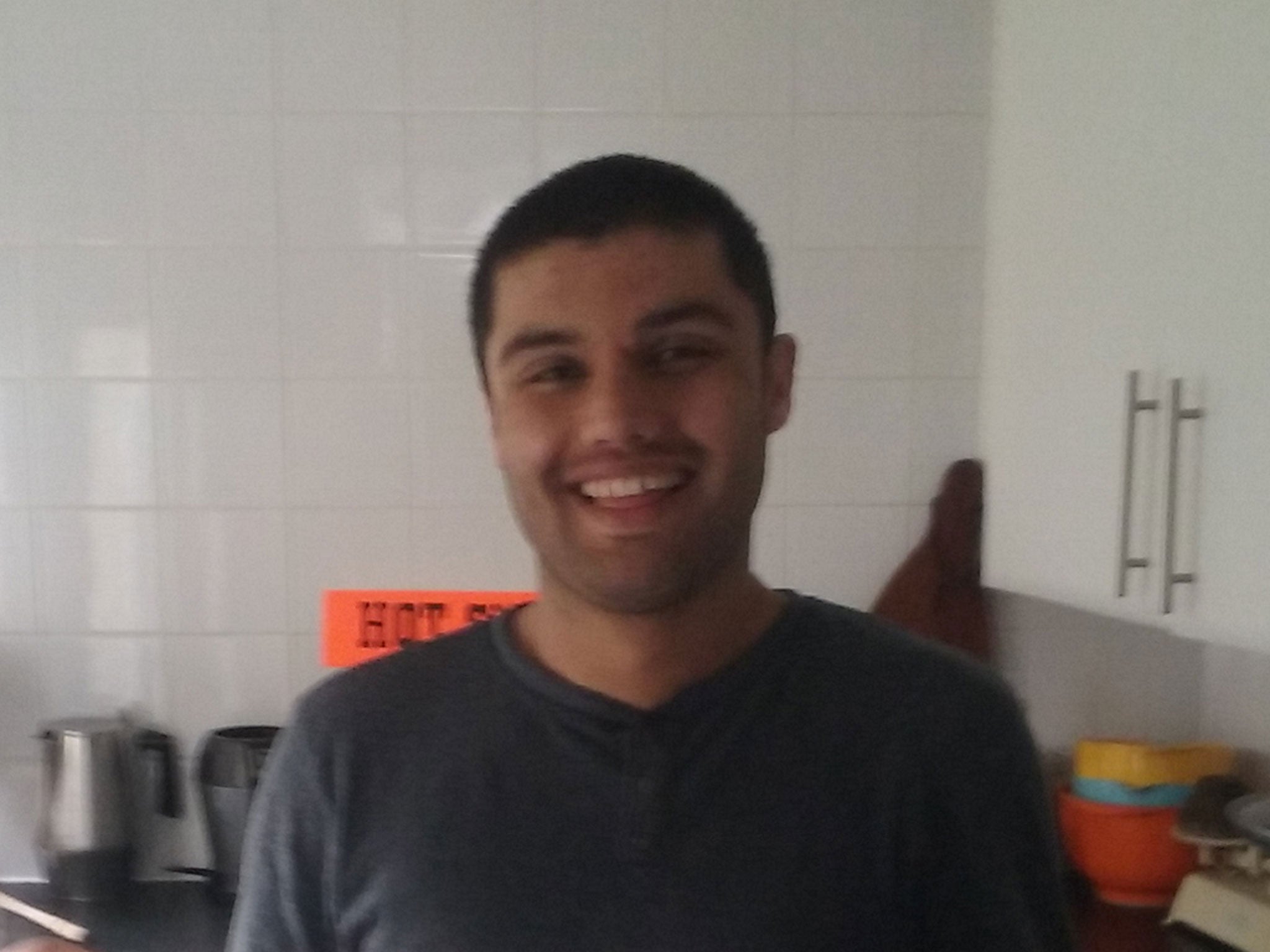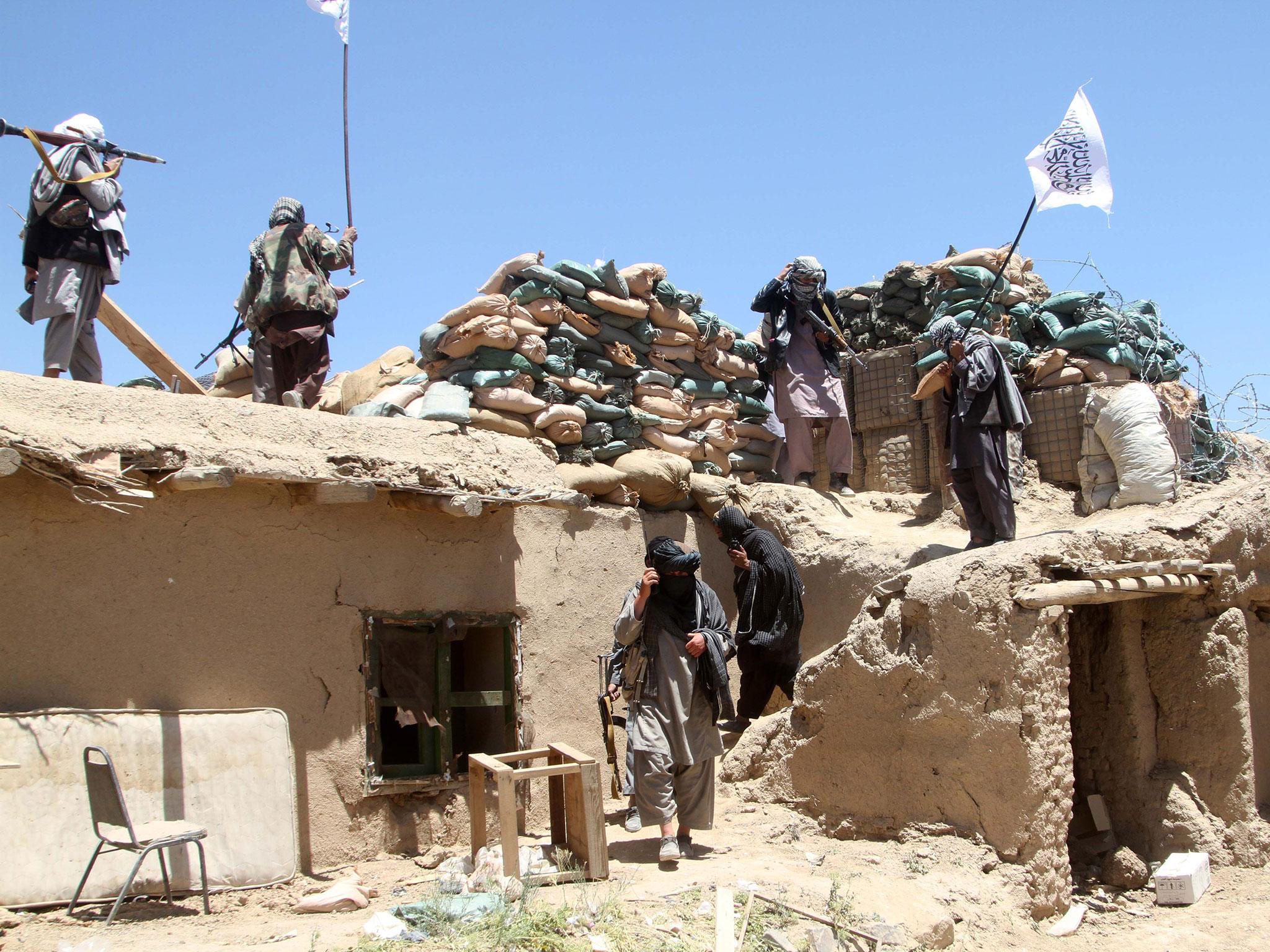Petition launched for Afghan man facing deportation despite death threats from Taliban
Samim Bigzad's family fear he will be killed if he is sent back to Kabul on Saturday

Your support helps us to tell the story
From reproductive rights to climate change to Big Tech, The Independent is on the ground when the story is developing. Whether it's investigating the financials of Elon Musk's pro-Trump PAC or producing our latest documentary, 'The A Word', which shines a light on the American women fighting for reproductive rights, we know how important it is to parse out the facts from the messaging.
At such a critical moment in US history, we need reporters on the ground. Your donation allows us to keep sending journalists to speak to both sides of the story.
The Independent is trusted by Americans across the entire political spectrum. And unlike many other quality news outlets, we choose not to lock Americans out of our reporting and analysis with paywalls. We believe quality journalism should be available to everyone, paid for by those who can afford it.
Your support makes all the difference.The family of a young Afghan man due to be deported from the UK within days are launching a desperate appeal to stay his removal over fears he will be killed by the Taliban.
Samim Bigzad, 22, risked his life to reach Europe after receiving death threats from Islamist militants who vowed to behead him because the construction company he worked for had contracts with the Afghan government and American firms.
He reached Britain on a lorry from Calais in November 2015 but was refused asylum and denied permission to appeal, and has now been detained ahead of his scheduled deportation on Saturday.
Mr Bigzad is due to be put on a commercial flight via Istanbul to Kabul – the city he fled in fear of his life two years ago.
“I believe he’s going to get killed,” said his cousin, Arash. “The Taliban have his details and all the information they need to find him.”
Kavel Rafferty, who has been hosting him at her home in Margate, has started a petition signed by more than 1,000 people appealing for a grace period to review Mr Bigzad’s asylum claim.
She said her lodger had no warning of the impending deportation until he went to his monthly appointment at an immigration office in London in July and was taken into custody.

“His father and cousin are British citizens – I can’t see why there’s a problem with him staying,” she told The Independent.
“The Home Office won’t accept anything Samim or his solicitor says… he is refusing to eat or drink, I’m very worried about him.”
Ms Rafferty, who works as an illustrator, offered her spare room to the Refugees at Home charity after watching the crisis unfold in Calais and was asked to house Mr Bigzad.
“He just seemed a bit lost, like a lovely young man,” the 45-year-old said.
“He is a genuinely nice lad who needed some help – he came for a week and then he just ended up staying.
“I think he’s probably been quite down but he’s not the sort of person to complain, he’s just thankful for anything.”
Mr Bigzad has been studying English while being the primary carer for his father, a British citizen and former Afghan national who suffers from mental illness after being imprisoned and tortured by the Taliban almost two decades ago.

His cousin Arash, a British citizen who also lives in Margate, said Mr Bigzad became a target for the insurgents when the construction company he worked from accepted contracts with authorities.
Arash, who did not want his full name to be published, said his cousin received a phone call from men claiming they represented the Taliban with a death threat because the company was “working with American troops”.
Mr Bigzad kept working for several weeks until he received a second phone call from the same group, who vowed to behead him.
“They said ‘we know where you live, where you work and when we see you we’ll chop your head off’,” Arash said.
“Once the Taliban know who you are they’re very clever people and they will assassinate you, they will kill you.”
Almost 16 years after the US invasion of Afghanistan, the Taliban still controls huge swathes of the country, where it is competing with al-Qaeda and Isis in a bloody campaign of insurgent battles and terror attacks.
The Taliban, which refers to itself as the Islamic Emirate of Afghanistan, captured Kabul in 1996 and has brutally targeted anyone accused of colluding with the government or Western “imperialists”.
After being urged to flee by his mother, Mr Bigzad paid a smuggler to leave Afghanistan via Iran to Turkey, then crossed the Aegean Sea alongside thousands of migrants at the peak of the refugee crisis.
He journeyed onwards through Europe and to Calais, boarding a lorry where he told relatives he almost suffocated to reach Dover in 2015.
Arash said the family resorted to paying smugglers along the well-trodden route after exhausting legal options, with his uncle previously attempting to bring Mr Bigzad to join him in the UK in 2010 under asylum legislation.
“His father is very upset, he can’t eat or sleep now and he doesn’t know what will happen to his son,” he added.
Arash said that in addition to the danger from the Taliban, the family had suffered discrimination as members of a Dari-speaking ethnic minority in Afghanistan.
A case worker familiar with Mr Bigzad’s case said his asylum application was turned down in March 2016 and that one appeal had been dismissed in court and two other attempts refused.
“The original refusal was based on ‘credibility’ and it’s a classic kind of case,” the man, who did not want to be named, told The Independent.
“In my experience Afghans are more likely to be refused on issues of perceived credibility and I would argue that there are a lot of issues surrounding that with the Home Office and social services.”
Home Office statistics show that little of a third of of all asylum applications were granted in 2016, with the rate for Afghan applicants standing at 35 per cent, sparking criticism from humanitarian groups amid worsening violence in the country.
Charities called on the Government to stop deporting migrants to Kabul following a terror attack that killed at least 90 people earlier this year, which was followed by numerous other atrocities in the capital.
There has also been heavy criticism over the plight of Afghan military interpreters who have been refused asylum despite being targeted by the Taliban because of their “collusion” with British forces.
Around 500 British troops from the UK are estimated to remain in the country, where they will soon be joined by thousands more American troops after Donald Trump announced increased efforts to combat terror.
As the conflict worsened last year, deportation flights resumed from the UK after the Court of Appeal ruled in favour of Theresa May, then the Home Secretary, and declared Kabul safe for returns – despite the Foreign Office advising against “all but essential travel” to the city for Brits.
A spokesperson for the Home Office said they could not comment on individual cases but insisted all asylum claims were carefully considered on their merits.
“All country policy and information is based on a careful and objective assessment of available evidence from a range of sources including media outlets, local, national and international organisations, and the Foreign and Commonwealth Office,” she added.
“We continually review our country policy and information to ensure it is up-to-date, accurate and relevant, so that staff can make fair and considered decisions.”
Ms Rafferty said she was “terrified” at the thought of Mr Bigzad being forced back to the city where militants threatened his life and concerned for his severely ill father.
“Sam is not just a number, not just a statistic,” she added. “He's a shy, lovely, funny, polite and harmless young man who needs our help.”
Join our commenting forum
Join thought-provoking conversations, follow other Independent readers and see their replies
Comments